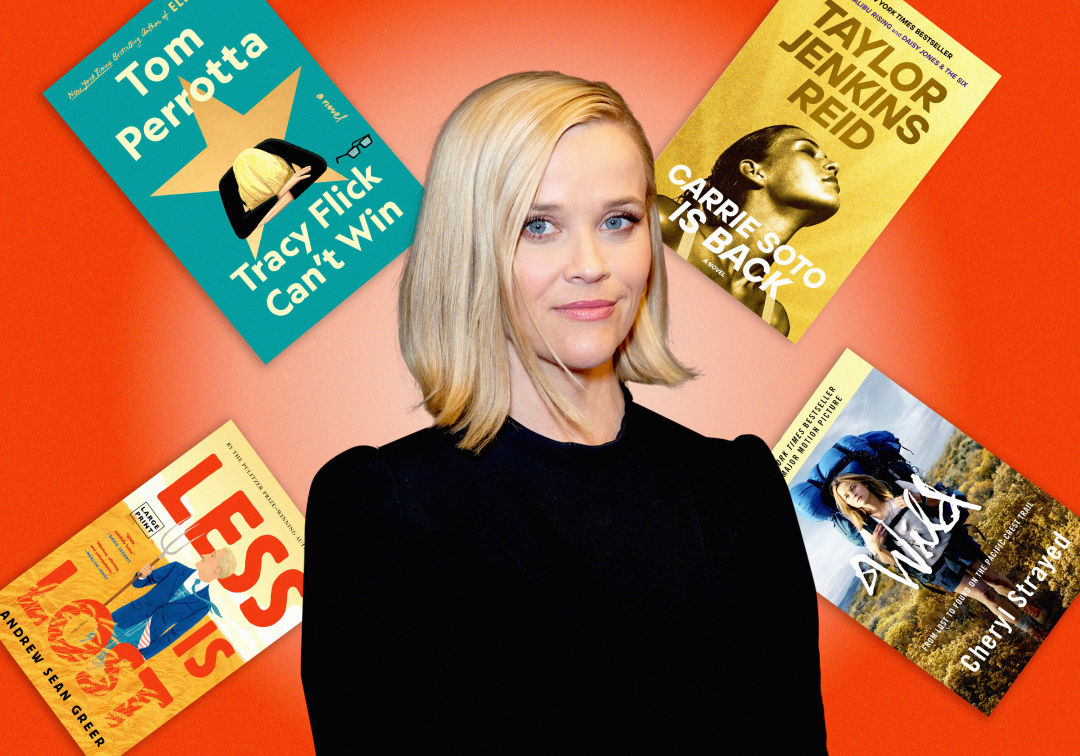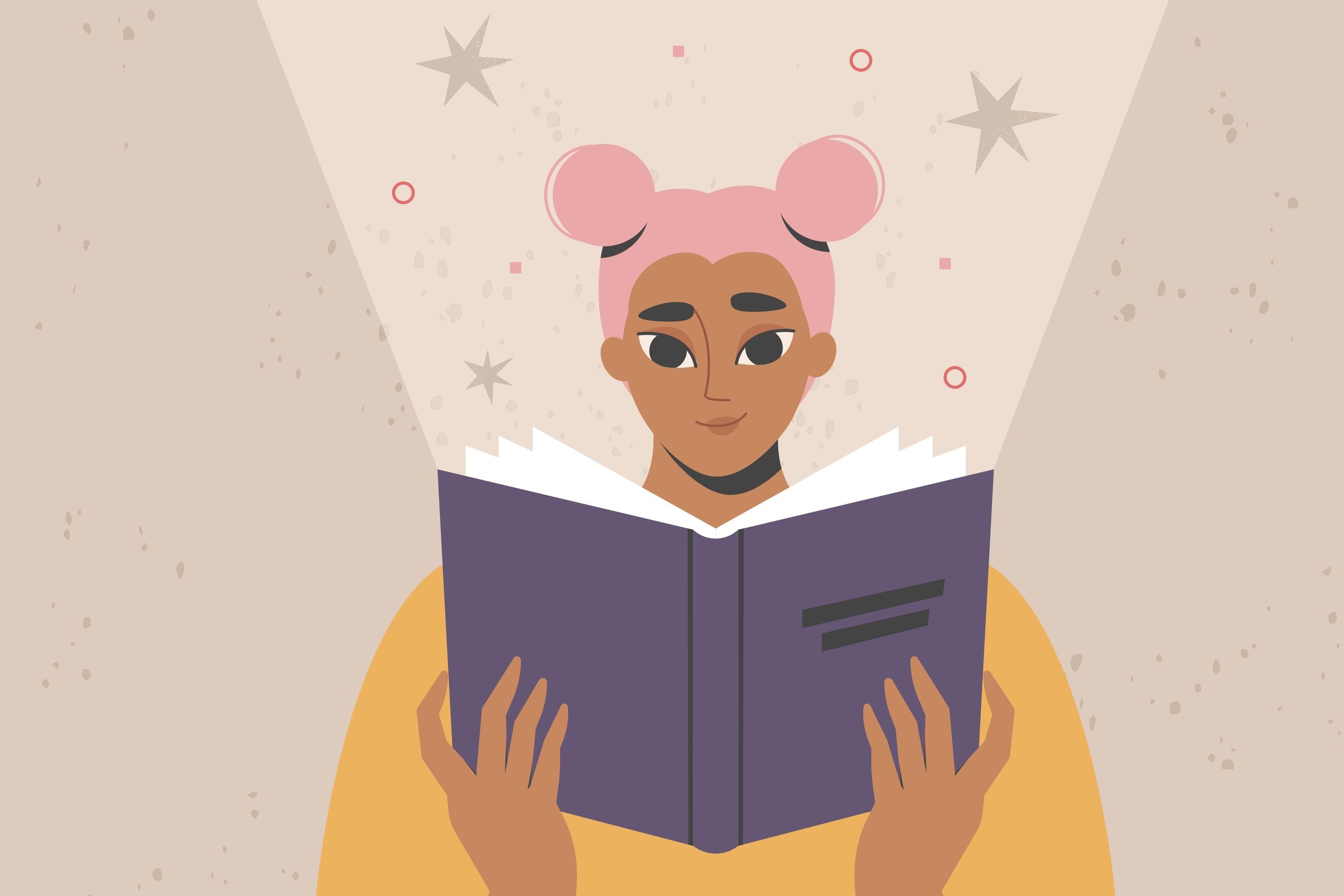Reese Witherspoon Wasn’t at the Portland Book Festival, Per Se

Book events rarely fill venues to capacity. But this year’s Portland Book Festival kept the South Park Blocks’ cluster of performance halls brimming with Portland’s most bookish for the entirety of an extremely full Saturday. Though not physically in attendance, Reese Witherspoon was the event’s phantom star.
Taylor Jenkins Reid, a regular of Witherspoon’s book club, brought the last of her quartet of novels, Carrie Soto Is Back, to the Schnitz. Reid, whose books can’t seem to be adapted for the screen fast enough (Witherspoon’s production company Hello Sunshine adapted Daisy Jones & The Six into a TV show for Amazon, due out early 2023), said at the event that this book, too, is “gonna be something.”
Reid described her novels as “fake memoirs,” saying she knew nothing about tennis when she set out to write this novel, essentially a fictional biography of a world-champion tennis star. Tennis, and sport in general, Reid said, was an attractive premise because, for her, it’s one of the only stages on which women can’t be judged for their looks. The empirical measure of points in a game means her titular character can rest on her achievements, not her appearance.
Reid was talking to Cheryl Strayed, whose 2012 memoir cataloging her journey on the Pacific Crest Trail, Wild, was adapted as a feature film starring, of course, Reese Witherspoon. The two jokingly commiserated about the adaptation process involving lots of photo ops with Hollywood stars—Reid shared an anecdote about doing yoga with Jessica Alba, Strayed told the story of Witherspoon teaching her how to pose for photos while shooting Wild.
It involves a three-quarter angle, she said; basically, you want to look like you have about one and one-half legs. Reid and Strayed both concluded that it’s not really something you can learn, and it’s not really about the pose: “But that’s the thing: she’s Reese fucking Witherspoon,” Strayed said, poignantly.
In the First Congregational United Church of Christ, with its backdrop of vaulted mahogany ceilings, stained glass depictions of biblical scenes, and an altar draped with a pride-colored quilt, Andrew Sean Greer and Tom Perrotta talked about follow-up novels ... and Reese Witherspoon.
Greer’s Less Is Lost follows his 2018 Pulitzer Prize–winning Less, both of which speak to the changing experience of being a gay man in America. Greer says he’s personally lived through the acceptance of queer narratives in art: his first novels, “even here at Powell’s,” he said, were stocked not in the literature section, but in the gay and lesbian aisle of the bookstore. Less, the protagonist of the two novels—a novelist himself—grapples with (among many other things) the changing realities of gay middle age.
Both Less and Less Is Lost are narrated by the protagonist’s boyfriend, Freddy. Perrotta drew a parallel to The Great Gatsby’s Nick Carraway, noting that the distance creates a sort of “loving omniscience” in the storytelling. He said he admired the romance it creates in Greer’s novel—Less had to have told Freddy the embarrassing stories the novel contains, because he wasn’t there.
Perrotta brought Tracy Flick Can’t Win, a title that follows a trend that many (Perrotta included) have said doesn’t quite fit the seriousness of the book. The formula, as the New York Times puts it, is “the main character’s full name, plus a statement that ironically summarizes the book’s content.” The Times reviewer goes on to say Perrotta’s latest is both “better than those [other] books and even more piercing than its predecessor."
The novel is a follow-up to 1998’s Election, whose Alexander Payne–directed film adaptation starred none other than Reese Witherspoon and turned the title character’s name into an emblem of girlboss feminism—or what the New Yorker called “craven female ambition.” Tracy Flick Can’t Win, set at the outset of #MeToo, brings the portrait into a modern view, questioning why good-on-paper Tracy has faced a lifetime of loses.
Greer and Perrotta’s panel was called “To Be Continued”; however, both authors were adamant that their books were follow-ups and not sequels (each can be read independently) and also that they had no intention of writing the second books when writing the first. “My agent specifically told me not to write a sequel,” said Greer, laughing.
On writing a character who’s been embodied by an actor, Perrotta, who’s had a prolific screen writing career, said Tracy Flick is Reese Witherspoon in his mind. Later, he corrected: “If Tracy Flick’s wildest dreams came true, she’d be Reese Witherspoon.”
When asked who he sees for Less in a potential film adaptation, Greer offered a coy “How about Daniel Craig?” Maybe next year, Portland.




